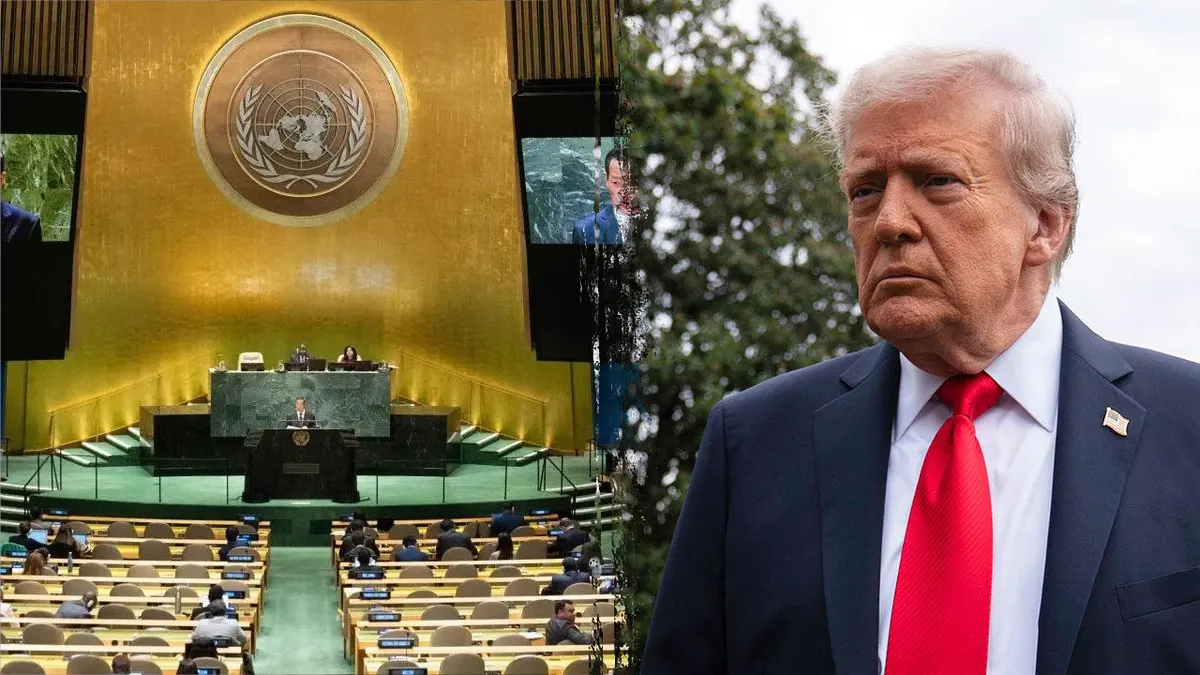New York City — As this year’s United Nations General Assembly convenes, former President Donald Trump is set to take the stage in New York, addressing world leaders on what the White House describes as a moment of both crisis and opportunity in global affairs.
Key Themes: Conflict, Diplomacy, and U.S. Leadership
Trump’s speech, scheduled for early Tuesday, is expected to touch on several ongoing global hotspots.
- Russia-Ukraine War: Despite hopes for progress, the war remains unresolved. Trump has publicly suggested he could broker a peace deal, but critics remain skeptical of how realistic his proposals are.
- Israel-Hamas Conflict: The Gaza crisis continues to draw international concern. Trump has called it a disaster and is likely to address not only the humanitarian angle but also diplomatic efforts underway to secure ceasefires.
- Palestinian State Recognition: Several U.S. allies—including the UK, France, and Canada—have moved toward formally recognizing a Palestinian state. The Trump administration has sharply criticized these moves, calling them symbolic and insufficient without concrete action.
Other Expected Focuses
- U.S. Accomplishments & Global Diplomacy: The president will likely present a summary of his diplomatic achievements, particularly his administration’s role in brokering ceasefires, as a key part of his message to the world.
- Global Institutions Under Scrutiny: Trump has long argued that international institutions have degraded in effectiveness or been compromised by globalist agendas. His speech is expected to accuse them of failing to uphold peace, development, or human rights, according to White House sources.
- U.S. Ambassadors and Global Relations: Fresh into his term, the U.N. ambassador Mike Waltz may also figure prominently—this will be one of his earliest moments before the international stage, and he may help frame or defend U.S. policy toward contentious issues such as human rights and foreign interference.
Tensions and Diplomatic Dynamics
- Visa Restrictions and Protocol Disputes: Ahead of the assembly, U.S. authorities have imposed travel and movement restrictions on Iranian delegates. Such measures could set a tone of friction, especially with countries who see these restrictions as targeting diplomatic norms.
- Alliances & Disagreements: Relations with traditional U.S. allies are being tested. On issues like Palestinian recognition, many European governments are charting paths divergent from Washington. How Trump addresses—or ignores—these rifts could shape both the speech and its aftermath.
Why It Matters
- Symbolism: The UNGA is one of the few global stages where heads of state confront a global audience. Trump’s performance will be closely watched as a barometer of his international posture.
- Policy Signals: Elements of the speech could foreshadow upcoming shifts in U.S. foreign policy—whether toward renewed engagement, more isolation, or something in between.
- Domestic Politics: Back home, Trump’s rhetoric abroad often feeds into his political messaging domestically, especially around strength, leadership, and global respect. How he frames his international engagements could bolster his position with certain voter blocs.
Trump’s address at the General Assembly isn’t just another speech—it’s a window into how his administration views the current global order and what it believes the U.S. role should be. Observers will be listening not just for what he says, but also for what remains unsaid.
















Leave a Reply